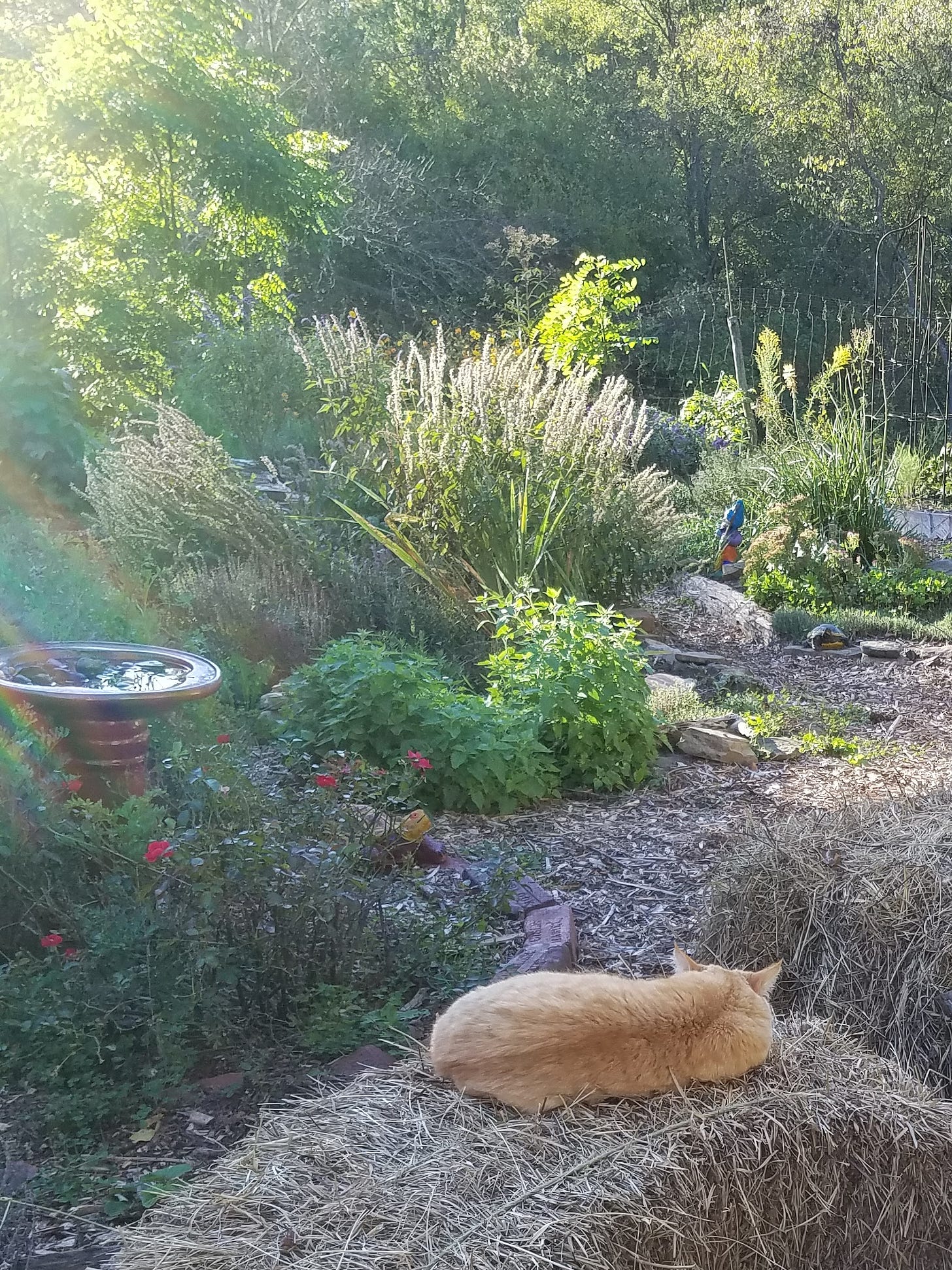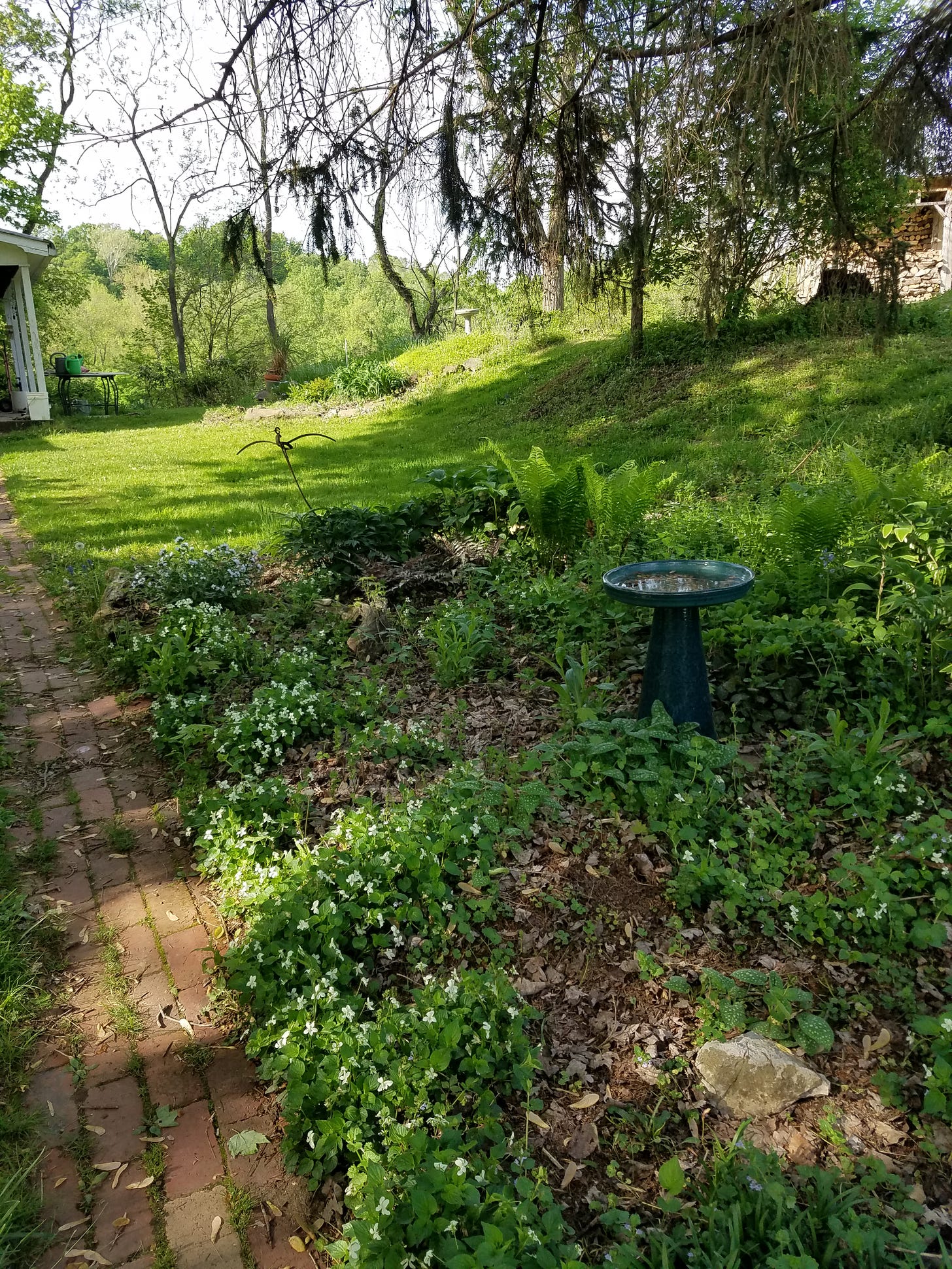I'll probably never get a PDC
Because permaculture tells me not to
Years ago, after becoming familiar with permaculture from reading Bill Mollison's books, I came across a reference to the PDC, or permaculture design certificate. This was the first I'd heard of such a thing, and I was intrigued. I did some research and learned that I would need travel across several states, pay over $1000, and stay two weeks, after which time I would receive my certificate.
After a good laugh at the impossibility of such an undertaking, I didn't give much more thought to the PDC until fairly recently. Cruising around social media these days one finds sites crammed with PDC promotions. In online groups a common answer to newbie questions regarding how to proceed with a project is “just get your PDC, then you'll know what to do.”
Before anyone gets their panties in a twist, I'd like to state for the record that a) I'm not against PDCs, b) I have no personal experience with PDCs, and c) From what I've gathered, products range from fabulous to worthless, as in any marketplace. I'm sure that many people have benefited from such courses, but when the major solution offered to beginners is one that is out of reach of 90% of the population, there is a big problem.
In permaculture, scarce resources (such as money!) are valued and used thoughtfully. A large return on a small investment is sought, rather than vice versa. (Check out the link below for more on this topic.) While spending a chunk of money on a course might be just the thing in certain circumstances, in my case in would slow down progress rather than accelerate it. This is because my ideas outstrip my resources. What would make more sense: Taking a PDC to help develop ideas that can never be implemented due to lack of money, or using scarce dollars to implement design elements that have been languishing in my imagination for years?
Rather than purchasing a costly PDC, I could use the money to replace the asphalt roll roof of my small utility room with metal, thus expanding the surface area feeding my water collection tank. I could improve fence infrastructure to create more grazing paddocks, expanding livestock carrying capacity without acquiring more land. I could purchase fruit trees, native shrubs, hand tools, or books about specific topics I'm interested in. I could get sheep! When I indulge in fantasies about what I could do with extra money, my imagination runs wild.
There are many people in a situation similar to mine with whom we need to be honest: You don't need a PDC to practice and excel at permaculture. In large part, success is determined by the ability to deprogram yourself from ingrained beliefs about the natural world and our place in it. As I've written ad naseum in past posts, permaculture isn't about specific techniques, but about making decisions within an ethical framework, guided by principles to create resilient and efficient systems.
Here is my advice should anyone be interested: If you have the wherewithal to, and the interest in, acquiring a PDC, you should do it. You will most likely learn a lot and have a lot of fun. If such an endeavor would create economic hardship and add stress to your life, don't worry about it. It's not necessary and there are many unpapered practitioners besides me that will attest to this fact. Learn as much as you can and then experiment. To get started I read books from the library, then started practicing. These days there are vast troves of information available online. A big part of permaculture is how elements are combined, so don't discount potential resources just because they don't self-describe as permaculture. Seek out experts on subjects you're interested in, then integrate what you've learned into your project.
I have a friend who is an amazing painter. Years ago when I asked her where she had studied, she told me she was self-taught, not out of necessity but by choice. She explained that she didn't want training to stunt her growth as an artist by instilling preconceived notions of what was possible and desirable in painting. At the time I was taken aback by this attitude, but now it makes more sense. Not only is success possible outside the walls of formal training, there is often greater room for creativity and innovation. It's definitely not a bad place to be.






I have been a student and practitioner of permaculture in one form or another since my early 20’s. A couple of years ago, at age 48, I was gifted an online PDC course (thanks Mom!). The course I took was, in my opinion, really good. It was a new way for me to go through Mollison’s design manual, and I was able to see many examples of permaculture in action at large and small scale.
Did this course change my life and my practice? Honestly, no. I got a lot out of it, and certainly came across new ideas to research and think about trying here at my site. Most of the new information that I picked up, however interesting, was readily available to me via YouTube and other online forums.
I think the most important message that I internalized from the incredible instructor was the importance of using and passing along information. He was adamant that it wasn’t enough to know something, you must put it into practice!
This of course brings us back to the accessibility problem. One of the most persistent criticisms of permaculture is how the courses are prohibitively expensive for many people and those that can afford it the most easily are often of white European descent as well as being male. I think this is certainly changing for the better but it is a big problem with the current path to certification.
And then there is the certification itself. What does it really mean? I have a design certificate…but I know so many individuals that are farther along the path than I am that don’t. I am not minimizing the certificate, I actually worked really hard for mine. But there isn’t much of a standard in the industry to help anyone understand what to expect in terms of ability. I think people see a certificate and assume it indicates a certain level of competence. I am designing my life and site based on years of learning here observation of this land. Could I offer advice and to somebody else to get them started? Yes, I could draw up a pretty professional looking plan with some decent advice, but to develop a real working system they would still need to spend that time understanding their site and learning to read the land and systems to see what worked and what didn’t.
One of the things that drives me nuts is visiting a site and hearing “oh, permaculture…yes, we had a permaculture guy here a few years ago, and now, look at this jungle…we have no idea what is going on. Can you explain ?”
Anyhow, I know this was a long response, but I think these dialogues need to happen! What is the best way to share information? How do you place value on your time and experience but still participate in open sharing of knowledge? Good questions!
Couldn’t agree more--on all points! Permaculture is so site-specific, too. So you take a PDC in the Pacific Northwest, and then come home to the Midwest and have to relearn it all for your specific planting zone, climate, and culture anyway.